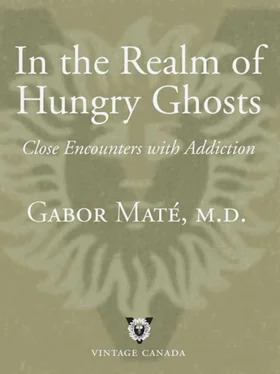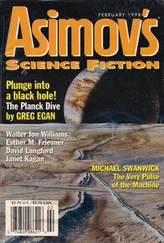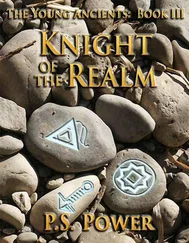That hasn’t happened. Dean has used: heroin intermittently and cocaine more consistently. He is on methadone. Occasionally he’s tried to scam me—and at times he’s likely succeeded in doing so—but now he’s very direct in acknowledging his substance intake. “It’s taken me a while to trust you,” he says, “but I love it that when I’m fucking up I can tell you that I’m fucking up.” (A statement which, for all I know, may be another scam.) More recently he’s been clean of all injection drugs for a few months and is feeling optimistic and energized. “Tune in again next time for another exciting episode,” he jokes about his ongoing battle.
Dean’s one-room apartment at the Sunrise Hotel is a far cry from the expensive home he used to own in South Vancouver, when he was a single father bringing up his three children and earning hundreds of thousands of dollars a year. “I had a computer business,” he says, “selling microcomputers back when they were $40,000 apiece. I would use my heroin in the morning and later at night. I did that for twelve years. Every second weekend, the kids would go see their mother. As soon as they were on that bus, I would shut the drapes, lock the doors and get totally wasted—until Sunday, when they came back. And then I would do the straight, blue-suit-and-tie thing and do the weekends with baseball and soccer for the next two weeks—just dying, just dying until I could close that door again and get high. It became harder and harder and harder to keep up the façade. I was lying to everybody, including myself. When I fell down, I really fell down. My wife [formerly a heavy drug user] finally straightened out, and the kids left to live with her. I immediately got back into cocaine. I hadn’t used cocaine in thirteen years…. I blew $180,000 in six months, and before I knew it, I was living down here in the Cobalt Hotel.” *8
Despite silver-spoon early years in a wealthy adoptive family and a successful business life, Dean spent six years in prison for drug-related crimes. “What’s the worst thing you’ve ever done?” I ask. Dean winces as he tells me about an incident in jail that still revolts him for its cruelty and physical sordidness—nothing would be served by repeating it here. “You’re only the second person I’ve ever told this,” he says. His long-time partner, Ann, was the first. “I saw and did some terrible things in jail. I could never talk about it. Ann finally told me to write it up. I wrote on for fifteen pages, couldn’t stop. Three months later, she asked me to read it to her. I read it out: I finally voiced it. I turned and looked at her and said, ‘You did it! You got it out of me.’ It made it a lot easier. And then I burned those pages.
“As I purged that shit, I realized I had to bring light back into my life. Otherwise, all the horror I’d seen and done would have been for nothing. There’s got to be some light. I believe there is a truth—for lack of another word, I’ll use ‘spiritual’ truth. It’s not God or this or that, but the fact is, the world is good, it all equals up to good, and I want that goodness in me….
“That’s why I’m so into this activism part. The whole idea behind VANDU was to trust the untrustworthy, help the helpless. Then we became very political. We’ve taken on governments, changed politics in this city. I’ve led senators on a walkabout of this neighbourhood, showing them it’s more than just drugs—it’s a community. That so many political leaders now support harm reduction, that’s our doing.” Whether or not Dean’s organization can take all the credit for this small but significant shift in the political wind, it’s an initiative to be proud of.
“Former mayor Philip Owen at one point said all the addicts should be sent to the army base at Chilliwack. Two years later, he was advocating for the SIS [Supervised Injection Site]. We took over City Hall and walked in with a coffin, to symbolize all the overdose deaths. Councillors said, ‘Get them out of here.’ I said, ‘I just need five minutes.’ Mayor Owen gave us five minutes, and I have to hand it to him—he listened to us. Now he’s internationally known for his leadership in harm reduction, and as a city, Vancouver is known for that. And who were we? Just a bunch of junkies.
“The little bits of light in this community are not publicized enough,” Dean goes on. In his hotel there are three or four older people. If Dean doesn’t see them for twenty-four hours, he does a room check. Others, he says, will look out for him. Many of the sex trade workers are also part of a buddy system: if one doesn’t show at the end of the day, the buddy will set things in motion to find her.
“In the days when I used to live in the West End, I’d get into the elevator and never look at anyone, just stare at the floor or the ceiling or the numbers as they lit up one after another. I didn’t know my neighbours. In my building I know everybody, and down here it’s like that everywhere.”
In his hyperkinetic way, which makes him look as if he’s jogging even when he’s sitting still, Dean continues. “Cynicism is rife down here, but at the same time most of us want to see that we’re looking after each other. We have the feeling that no one else is going to look after us—for most people down here, no one ever has—and so we have to care for each other. It’s done at the most basic level—just, ‘How are you, how are you getting along?’ And then you leave the person alone. We somehow balance all the ripping each other off with the caring. There’s a lot of warmth, a lot of support.”
Dean knows that isolation is in the very nature of addiction. Psychological isolation tips people into addiction in the first place, and addiction keeps them isolated because it sets a higher value on their motivations and behaviours around the drug than on anything else—even human contact. “Rip-offs happen, but being part of the community is important. Even if it’s the poorest postal code in the country, this is the last club. ‘If you can’t belong to this club,’ I say, ‘you can’t belong to any club.’”
There are many volunteers, committed caregivers and support groups in the Downtown Eastside. Innovative programs are often initiated on shoestring budgets, with the participation of people who were only recently wired to narcotics or other drugs. Judy, quoted in Chapter 3, has given up cocaine completely. She volunteers with other members of a night patrol, acting as guardian angels to sex trade workers. “We keep an eye on them. We speak with them, just to say hello or to kid around. We ask if they need any help. We give out condoms. We make them feel there’s someone around they can turn to if they’re in trouble.” The transformation in Judy’s self-perception, the rise in her self-esteem since she’s begun to serve the needs of others in a genuine way is wondrous to behold. In a recent photograph she radiates a confidence and sense of purpose that were unimaginable just one year ago, when she was on IV antibiotics for a near-crippling spinal infection and had to wear a metal brace drilled into her skull.
“I’ve been through infections many times, but this was a really serious one,” Judy told me shortly after her treatment was completed. “Having the steel halo on all that time and being limited and feeling screws bolted in my head—it was definitely an eye-opener. Yeah…every time I get any using thoughts I just remind myself what I went through for the last five months, and it’s just not worth the chances.
“When I was using, I had tunnel vision,” she now recalls. “I didn’t really notice that life was still existing around me. I just knew my little world. What I wanted was what I revolved around—when was I going to have my next fix or next toke or whatever. Now I actually go for walks a couple of times a day, and I go out and I see all the people, and all the tourists. And I say, ‘Hi…how you doing…?’ I don’t know what’s wrong with me…and it’s so strange…. It’s a good feeling, I’m liking it, but it’s all so weird. Is this going to stop, is this going to change anytime soon? I’m not trying to be pessimistic. It’s just that it’s so unusual, so foreign to me.”
Читать дальше












